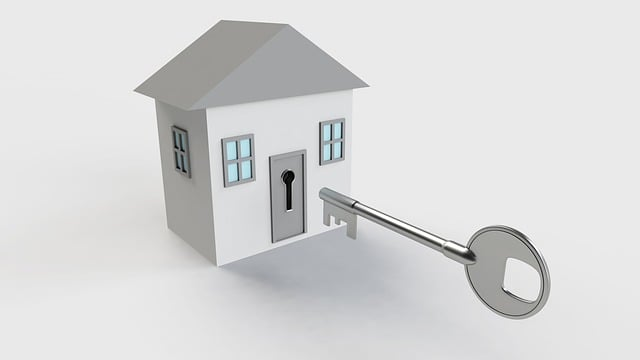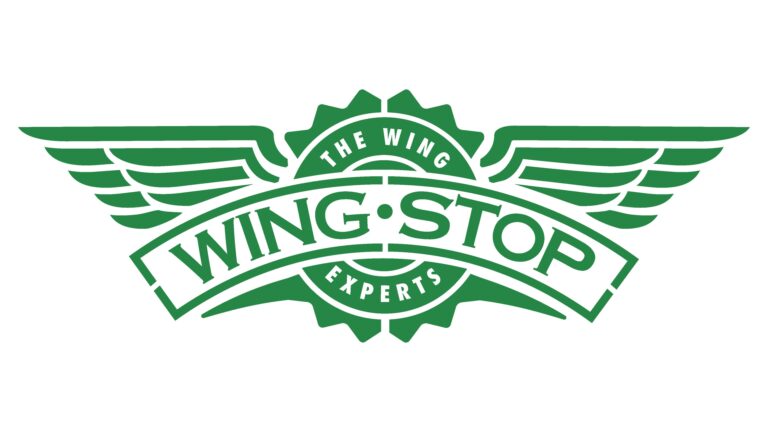What are Hard Money Business Loans?
A hard money business loan is secured using real property as collateral. It differs from traditional business loans in that the collateral is the main determining factor for approval, as opposed to conventional requirements like a personal credit score, time in business, and annual revenue.
Another significant difference between hard money loans and traditional business loans is the lender that supplies the funds. Hard money loans are funded by private investors or companies, as opposed to traditional financial institutions like banks and credit unions.
These short-term loans largely came from the world of real estate, where investors would take out a loan to finance renovating a property to flip it. Property investors use these loans when they don’t have the cash reserves to flip a property on their own. In theory, a real estate investor would acquire a property with a hard money loan, use the property as collateral, renovate it, and then sell it for profit and pay off the loan.
Hard money loans in business operate in a similar way where any commercial or private property the company owns acts as collateral. The business then repays the loan with future profits.
How do Hard Money Loans work?
Getting a hard money loan requires working with a private lender or company. The amount you receive is based on the value of your collateral.
Loan-to-Value (LTV)
A loan-to-value ratio is the percentage of the collateral’s value that you receive as the loan amount. Hard money loans tend to have a lower LTV than traditional loans.
Banks and credit unions might loan you 80%-90% of the collateral’s face value. Hard money loans might have an LTV of 65%.
For example, suppose you are taking out a hard money business loan against real property appraised at $150,000. The hard money lender would then issue you a loan for 65% of that value, or $97,500.
Down Payment
Most hard money lenders require a down payment anywhere from 15%-30%. If you have an established relationship with the lender and have successfully repaid hard money loans, they may waive the down payment.
Interest Rates & Other Costs
Hard money business loans usually carry higher interest rates than conventional loans to offset the lender’s risk. The loans are riskier for the lenders, and they charge more to help mitigate that risk.
Lenders charge interest rates of anywhere from 7%-20%, with fees that total anywhere from 1%-10% of the loan amount. Origination fees vary between lenders.
Loan Proceed Disbursement
Most hard money loans are disbursed as a single lump sum. However, some lenders may structure the loan as a line of credit.
Repayment
Hard money loans are short-term financing, meaning you’re typically required to pay the loan off in less than 24 months. Terms can be as short as 4 months.
The short repayment period means you’ll have a larger payment due. Repayment schedules can be monthly, weekly, or daily.
Where can I get a Hard Money Loan?
It’s mostly private companies or investors that offer hard money loans. They’re typically flexible and can move quickly on loan decisions and invest in your business opportunities. Many hard money lenders are local companies or investors, but some operate nationally.
You can find hard money lenders with a quick internet search. You can also contact business owners to find other hard money lenders. However, it would be best if you were careful when selecting a private lender.
The best practice would be to contact several private lenders to compare hard money lending options. If possible, look for other business owners or property investors who worked with that lender. The best hard money lenders will be upfront about their costs.
What are the advantages of Hard Money Loans?
In general, hard money loans carry easy applications with minimal documentation requirements. Since the value of the property used as collateral is the primary factor for approval, you don’t have to supply as many documents for income verification.
These loans don’t require high credit scores, a long time in business, or high annual revenue. Again, the value of your collateral is the most important thing hard money lenders look at when approving loan requests.
It’s also possible to get funds faster than with conventional loans. You could potentially get your money in just a few days. This is especially true when using a hard money loan to purchase a property. lenders are not subject to the same waiting periods that a mortgage lender must follow.
What are the disadvantages of Hard Money Loans?
These loans typically carry higher interest rates and fees than traditional business loans or commercial mortgages. The loans are considered riskier, and you usually get a higher interest rate. In addition, hard money lenders are not subject to the same regulatory standards as traditional lenders.
The risk also applies to the borrower. The property they use as collateral is at risk because the lender will claim the collateral if the borrower defaults.
Hard money business loans also tend to have a lower LTV than other forms of traditional financing. The lower LTV means you’ll get a loan amount significantly lower than the value of the asset you’re putting at risk.
Most hard money loans also require a significant down payment and closing costs. It can be difficult to put together that kind of cash upfront.
The increased cost and short repayment terms combine for larger monthly payments that can strain your cash flow. Some lenders may help you reduce your monthly payment by making interest-only payments or interest plus a small percentage of the principal. However, you would then have a large balloon payment due at the end of the loan term.
Hard Money Loan Pros & Cons
Here’s a quick summary of the benefits and drawbacks of hard money business loans.
Pros:
- Simple applications with minimal documentation.
- Can get approved with a low credit score.
- Quick turnaround times on approval and receiving loan funds.
Cons:
- High interest rates and fees compared to conventional loans.
- Risky way to borrow money.
- Lower LTV than other forms of asset-based financing.
- Might require a sizeable down payment.
- Short-term financing with either high monthly payments or a balloon payment.
Frequently Asked Questions
Here are the most common questions about hard money business loans.
Are Hard Money Loans safe?
All loans carry some risk, and hard money loans are sometimes considered high-risk due to the interest rates and short repayment terms. However, hard money loans can be safe if done the right way.
Can I get a Hard Money Business Loan with bad credit?
Yes, one of the primary reasons small business owners turn to hard money loans is because they don’t have the credit score to qualify for a conventional loan. Like most bad credit business loans, hard money loans are used as bridge financing. You can get short-term funding to support your business or fund a real estate acquisition while improving your credit to qualify for more advantageous loans.
Do Hard Money Loans require a down payment?
In most cases, hard money loans will require a down payment of up to 30%.
What are my alternatives to Hard Money Loans?
Real estate investors primarily use hard money loans to fund flipping houses, but small businesses can also use them. However, a hard money loan is not right for every business or situation. There are many alternative business loans to consider over a hard money loan.
Business Term Loans
Term loans are the most common and conventional form of business financing. Most people think of term loans when they hear the phrase “business loan.”
With a term loan, you receive a large cash sum upfront, which you repay plus interest in fixed monthly payments. Business loan approval is based on traditional factors like your credit score, time in business, and annual revenue.
However, you can get a business term loan through an alternative business financing facilitator (like United Capital Source) for much lower qualifications than you would need at a bank. Approved business owners we work with here at UCS typically have a minimum personal credit score of 550 with at least six months in business and $75k+ in annual revenue.
Business term loan features include:
- Loan amounts: $10k-$5 million.
- Factor rates starting at 1-4% p/mo.
- Terms: 3 months – 5 years.
- Speed: 1-3 business days.
Equipment Financing
Equipment financing allows you to acquire expensive business equipment and machinery you couldn’t afford to purchase out of pocket. It’s sometimes possible to finance 100% of the cost.
There is a wide range of business equipment, and nearly every industry uses some form of equipment. Some examples include computers, office furniture, restaurant equipment, construction and manufacturing machinery, fleet vehicles, gas station equipment, and much more.
The equipment you’re financing acts as the collateral, which is known as a self-collateralized loan. You might be familiar with other self-collateralized loans, such as car loans or mortgages.
Approved business owners typically have a credit score of 600+ with at least one year in business and $250k+ in annual revenue. United Capital Source equipment financing features:
- Funding Amount: Up to $5 million per piece of equipment.
- Rates: Factor rates starting at 3.5%.
- Terms: 1-10 years.
- Speed: 3-10 business days.
Business Lines of Credit
Business lines of credit are flexible financing structures that let you access funds only when needed. It operates like a credit card, where you get a set credit limit to draw funds from. You only pay interest on the money you draw, so you could save money if you don’t use all the funds.
Business lines of credit through UCS are revolving, which means your credit limit replenishes as you pay off what you draw. For example, if you drew $20,000 against a $150,000 limit and then repaid $10,000, your new credit limit would be $140,000.
A line of credit is an excellent option for ongoing projects, seasonal businesses, and covering unexpected costs. Approved business owners typically have a minimum credit score of 550+, at least six months in business, and $75k+ in annual revenue.
You can get the following features on a business line of credit:
- Funding Amount: $1k-$1 million.
- Rates: Factor rates starting at 1% p/mo.
- Terms: Up to 36 months.
- Speed: 1-3 business days.
Other small business loans to consider include:
Hard Money Business Loans – Final Thoughts
Business owners that need quick funding to support a short-term project or goal could consider hard money loans if other options aren’t available. But you should know the risks involved and vet the hard money lender as much as possible before agreeing to loan terms.
The increased interest rates, using the property as collateral, and looser regulations for hard money lenders all combine for a higher risk However, if you can pay the loan off in time and use the funds to support or grow your business, then it is certainly a viable option.
Contact us if you have more questions or want to apply for a small business loan. Our loan executives can answer your questions and help you find the best small business financing product to support your business goals.











